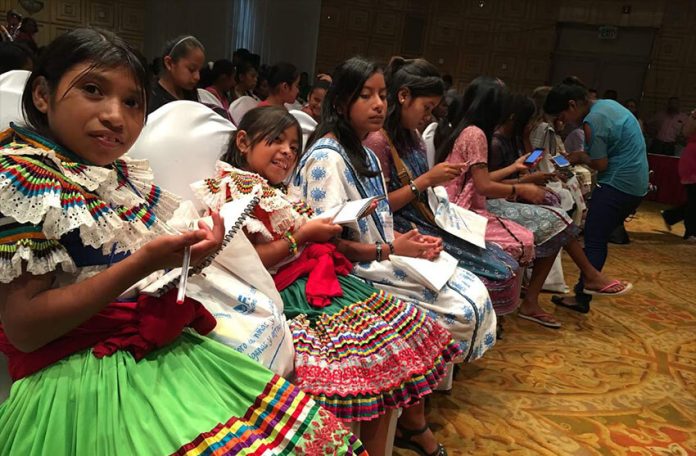Two 14-year-old girls were imprisoned for over 24 hours earlier this week after they attempted to flee their hometown in Guerrero to avoid impending forced marriages.
The indigenous Mixtec teenagers tried to leave El Capulín, a community in the Costa Chica region, last Sunday but were detained before they could escape. With the consent of their families, they were locked up in cells at the El Capulín police station.
The girls’ parents had arranged marriages for their daughters, a common practice in some indigenous towns in Guerrero. Young girls are sold into marriage for 40,000 to 200,000 pesos (about US $2,000 to $10,000), according to a 2021 report by the newspaper Reforma, which described the sale of child brides as a form of 21st-century slavery.
The Guerrero State Human Rights Commission (CDHEG) intervened in the case of the El Capulín girls and acting in conjunction with Tlacoachistlahuaca municipal authorities, managed to secure their release on Monday. They were returned to their families the same day.
Authorities told the families that the girls’ imprisonment and forcing them into marriage was a violation of their human rights. The CDHEG and Tlacoachistlahuaca will monitor their situation to avoid any further violations.
The girls’ night behind bars came eight months after another Mixtec teenager was jailed in the Montaña region of Guerrero after she too fled her home to avoid an arranged marriage. The family of Anayeli, aged 14 or 15 according to differing media reports, had arranged for her to marry a slightly older boy. The girl’s mother had agreed to a payment of 200,000 pesos from the boy’s family.
People below the age of 18 were banned from marrying across Mexico in 2019, but enforcing the law has been difficult in some indigenous communities.
During a trip to the Montaña region late last year, President López Obrador rejected claims that the practice of forced marriages was widespread, asserting that a media campaign had made the sale of girls for marriage or prostitution appear to be a bigger problem than it really is.
“I’m not here to look at that because it’s not the rule,” he said. “There are a lot of moral, cultural and spiritual values in the communities. It might be the exception, but it’s not the rule.”
The Network for Children’s Rights in Mexico promptly condemned the federal government for downplaying the seriousness of Mexico’s child trafficking problem, including the sale of young girls, saying it is a crime that the Mexican state must investigate and eradicate.
With reports from El Sol de Acapulco
